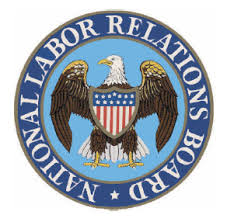 What is NLRA?
What is NLRA?
The National Labor Relations Act (NLRA) Section 7 provides to all employees (non-union and union) the right to engage in concerted activity.
This legally protected concerted activity can include such things as discussions among employees about:
- their jobs,
- their pay,
- their supervisors,
- or other working conditions.
In the case of dissatisfied employees, concerted activity may take the form of employees complaining about their employer or co-workers (i.e. Facebook).
What is NLRB?
The National Labor Relations Board is an independent federal agency vested with the power to safeguard employees’ rights to organize and to determine whether to have unions as their bargaining representative. The agency also acts to prevent and remedy unfair labor practices committed by private sector employers and unions.
Employers often assume the National Labor Relations Act (NLRA) and the NLRB only apply to unionized workplaces. Not true! Section 7 protected concerted activity rights apply to all employees – whether they work in a unionized workplace or not. In fact, the NLRB is increasingly turning its attention to non-unionized employers. Why? Because the number of union workplaces throughout the country are plummeting. Also, the agency plainly intends to try to limit employers’ efforts to reasonably manage employee conduct.
Since the NLRB is responsible for protecting employees’ Section 7 rights. That means investigating complaints, and in cases where the NLRB considers an employer has crossed the line and unlawfully restricted employees’ rights to participate in concerted activity, prosecuting an unfair labor practice complaint against the accused employer.
Recent rulings by the NLRB limiting employer policies
Issue: Policies promoting courtesy and professionalism
Hills and Dales General Hospital was a Michigan acute care facility with an extremely poor work environment. The hospital’s departments were not cooperating with one another, employees were fighting amongst themselves, patient care was suffering and, understandably, patients were looking for medical care elsewhere. To try to improve patient care and the employment environment, the hospital issued to its workforce a “Values and Standards of Behavior Policy.” The policy prohibited negative comments about co-workers and engaging in negativity or gossip. Employees were required to represent the hospital in the community “in a positive and professional manner.” First Transit had a similar desire to maintain a professional environment for drivers, mechanics and support personnel assigned to its Phoenix facility. First Transit put in place a Personal Conduct Rule, which prohibited discourteous or inappropriate behavior towards other employees. No question these were reasonable rules put in place by the hospital and First Transit aimed at providing a workplace beneficial to both the employer and employees. However, that’s not how the NLRB saw it.
NLRB Ruling: Drop courtesy and professionalism policies
In both of these cases, the NLRB struck down the policies, holding the employers had gone too far and were unlawfully restraining their employees’ Section 7 rights. According to the NLRB, the hospital and First Transit’s rules addressing employee conduct and behavior were overbroad, ambiguous and could discourage workers from engaging in communication that amounted to protected, concerted activity.
What does this mean for Employers?
Re-review your policies to ensure that they are not overbroad, ambiguous, or could violate protected concerned activity.
